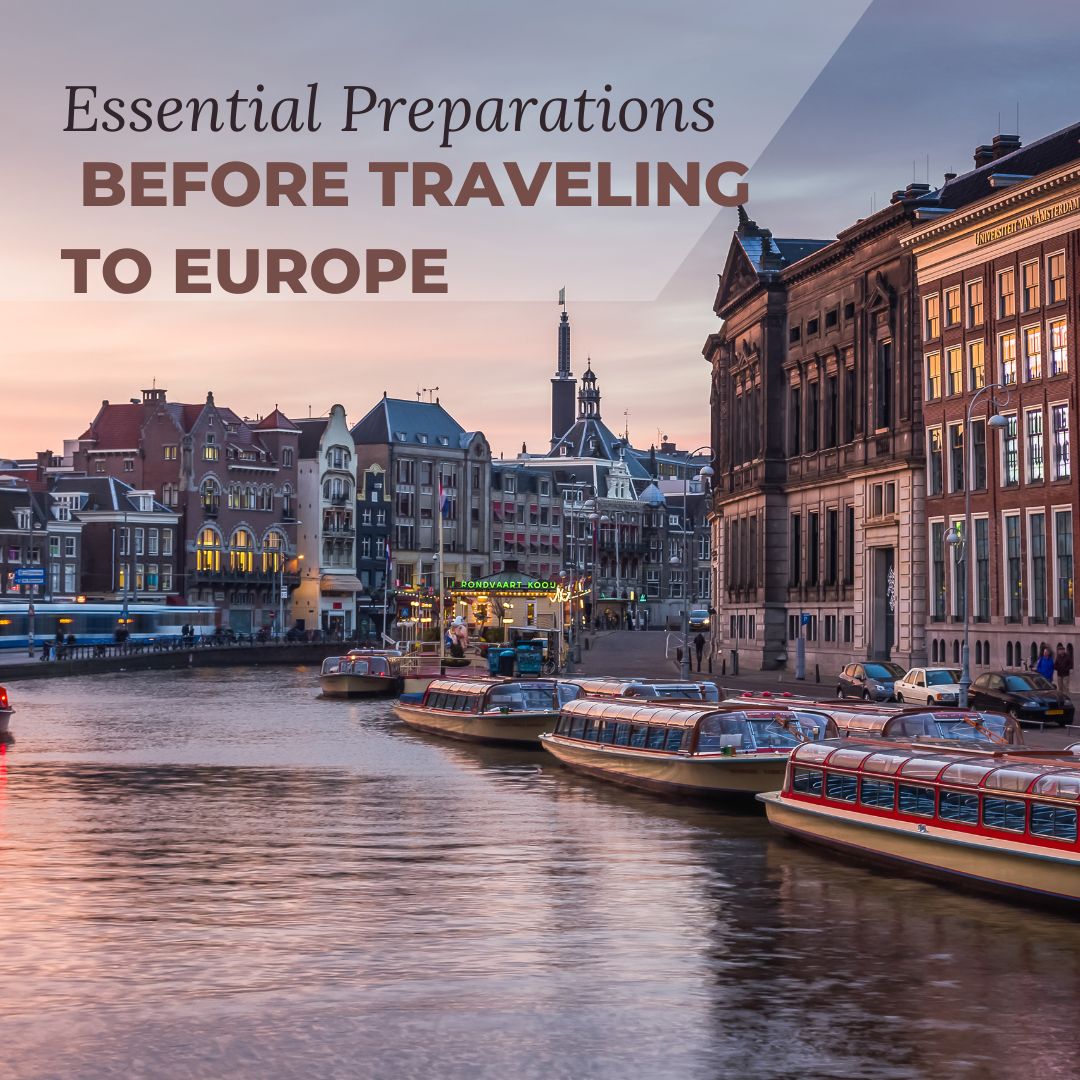


Traveling to Europe is an exciting adventure filled with diverse cultures, rich histories, and breathtaking landscapes. To ensure a smooth and enjoyable trip, it’s important to make thorough preparations before you embark on your journey. This article outlines the key steps and considerations to take into account things to do before a trip to Europe, helping you make the most of your experience.

Europe is a vast continent with countless destinations to explore. Start by researching the countries and cities you want to visit. Consider your interests—whether it’s art, history, nature, or cuisine—and choose destinations that align with your preferences. Make a list of must-see attractions and landmarks to create a rough itinerary.
Create a budget for your trip. Take into account the cost of flights, accommodation, transportation, food, and activities. Be realistic about your spending and plan for unexpected expenses. This will help you avoid financial stress during your travels.
Once you have a rough itinerary, book your accommodations in advance. Whether you prefer hotels, hostels, or vacation rentals, securing your lodgings early can save you money and ensure availability, especially during peak travel seasons.
Ensure your passport is valid for at least six months beyond your planned return date. If it’s not, renew it well in advance to avoid any last-minute issues.
Check the visa requirements for each country you plan to visit. Some European countries require visas for certain nationalities. Apply for any necessary visas in advance, as processing times can vary.
Purchase travel insurance to cover unexpected events such as medical emergencies, trip cancellations, or lost luggage. Choose a policy that suits your needs and covers all the destinations on your itinerary.
Familiarize yourself with the currency used in each country you will visit. Exchange a small amount of money before you leave to cover initial expenses. You can exchange more money at local banks or use ATMs once you arrive.
Inform your bank and credit card companies of your travel plans to prevent your cards from being flagged for suspicious activity. This will ensure you can use your cards without any issues while abroad.
Consider getting a travel credit card with no foreign transaction fees. These cards can save you money on currency conversion and offer rewards or travel benefits.
Check the weather forecast for each destination and pack accordingly. Europe’s climate varies greatly, so bring layers and versatile clothing to adapt to different conditions.
Pack travel essentials such as a universal adapter, portable charger, and a sturdy suitcase or backpack. Include a first-aid kit with basic medications, bandages, and any prescription medications you need.
Europe is best explored on foot, so bring comfortable walking shoes. Stylish yet practical footwear will keep you comfortable while navigating cobblestone streets and long days of sightseeing.
Check if any vaccinations are required or recommended for the countries you plan to visit. Carry your vaccination certificate if needed.
Familiarize yourself with the local health regulations and precautions, especially in light of the COVID-19 pandemic. Carry hand sanitizers, masks, and follow local guidelines to stay safe.
Save important contacts such as the local embassy, emergency services, and your accommodation’s phone number. Keep a physical copy of these contacts in case your phone loses battery or connectivity.
Check with your mobile carrier about international roaming options. Alternatively, consider purchasing a local SIM card or an international travel SIM to stay connected.
Download useful travel apps for navigation, translation, and local information. Apps like Google Maps, Duolingo, and TripAdvisor can enhance your travel experience.
Backup important data from your phone and laptop before you leave. This ensures you won’t lose valuable information if your devices are lost or stolen.
Learning a few basic phrases in the local language can go a long way. Phrases like “hello,” “thank you,” and “where is the bathroom?” will make your interactions with locals more pleasant and show respect for their culture.
Research cultural norms and etiquette for each country. Understanding local customs, such as tipping practices and greeting styles, will help you blend in and avoid unintentional faux pas.
Book your flights well in advance to secure the best deals. Consider flexible dates and routes to save money.
Research the local transportation options in each city. Familiarize yourself with the public transportation systems, such as buses, trams, and subways. Purchase any necessary travel passes or tickets in advance.
If you plan to drive, ensure you have an international driving permit and understand the local driving laws. Book your rental car in advance to guarantee availability.
Stay updated on travel advisories and alerts for your destinations. Check government websites for the latest information on safety and health risks.
Stay informed about local news and events. This will help you avoid areas with potential disruptions and enhance your travel experience.
Make arrangements for your home while you are away. This includes stopping mail delivery, arranging pet care, and setting up automatic bill payments.
Make photocopies of important documents such as your passport, visa, travel insurance, and itinerary. Keep a copy with you and leave another with a trusted friend or family member.
Finally, take some time to relax before your trip. Traveling can be stressful, so ensure you are well-rested and ready to enjoy your European adventure.
Proper preparation is key to a successful and enjoyable trip to Europe. By planning your itinerary things to do before you travel to Europe, organizing travel documents, and taking care of financial, health, and safety considerations, you can ensure a smooth and memorable journey. Follow these essential steps to make the most of your European adventure and create lasting memories.